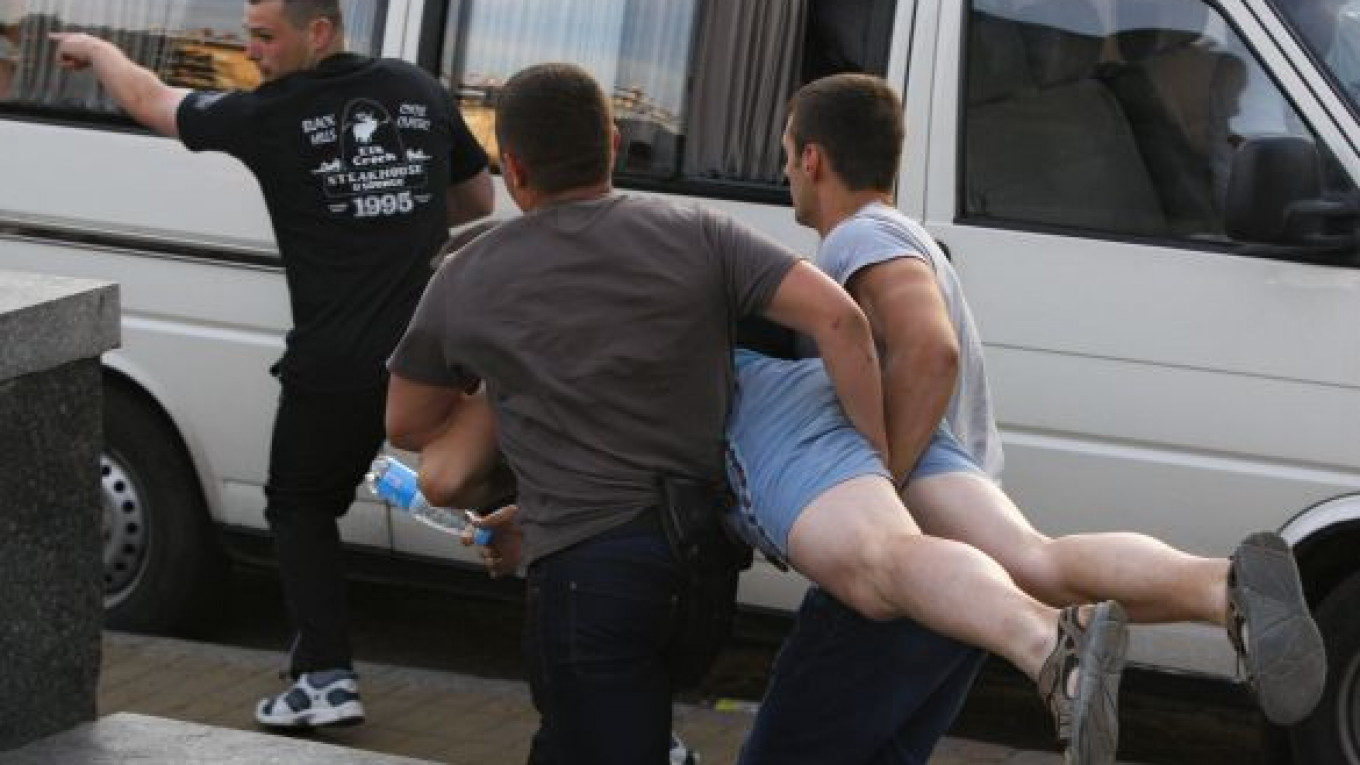MINSK — Belarussian police beat up and arrested dozens of anti-government protesters during a banned Minsk rally calling for the ouster of President Alexander Lukashenko.
A reporter saw dozens of plainclothes police round up the protesters during the rally late Wednesday, kicking and punching them before bundling them into unmarked vans. An Associated Press photographer was punched several times by police on his forearms, apparently in an attempt to stop him from taking pictures.
It was the sixth rally in a series called "Revolution by Social Networks," a grassroots movement that claims thousands of supporters nationwide.
The government has banned the rallies, which feature novel forms of nonvocal protest, and used brutal force and tear gas in eliminating resistance.
Hundreds of demonstrators set the alarms on their cell phones to go off at 8 p.m. in a gesture calling for fellow Belarussians to wake up and resist Lukashenko's government.
Most of the protests thus far have featured hand-clapping.
Public discontent is swelling as Belarus experiences its worst financial crisis since the Soviet collapse. The country recently devalued the national currency, causing panic buying of goods and huge lines at currency exchange offices.
Much blame is directed at Lukashenko for increasing public sector salaries in pre-election populism last year when the country could ill-afford it.
Belarus is under pressure from Russia and the West. Moscow has been pushing for greater control over the Belarussian economy in exchange for loans to help Lukashenko's government weather the financial turmoil, while the European Union has threatened to expand sanctions imposed on Lukashenko as punishment for his crackdown on the opposition.
A Message from The Moscow Times:
Dear readers,
We are facing unprecedented challenges. Russia's Prosecutor General's Office has designated The Moscow Times as an "undesirable" organization, criminalizing our work and putting our staff at risk of prosecution. This follows our earlier unjust labeling as a "foreign agent."
These actions are direct attempts to silence independent journalism in Russia. The authorities claim our work "discredits the decisions of the Russian leadership." We see things differently: we strive to provide accurate, unbiased reporting on Russia.
We, the journalists of The Moscow Times, refuse to be silenced. But to continue our work, we need your help.
Your support, no matter how small, makes a world of difference. If you can, please support us monthly starting from just $2. It's quick to set up, and every contribution makes a significant impact.
By supporting The Moscow Times, you're defending open, independent journalism in the face of repression. Thank you for standing with us.
Remind me later.






